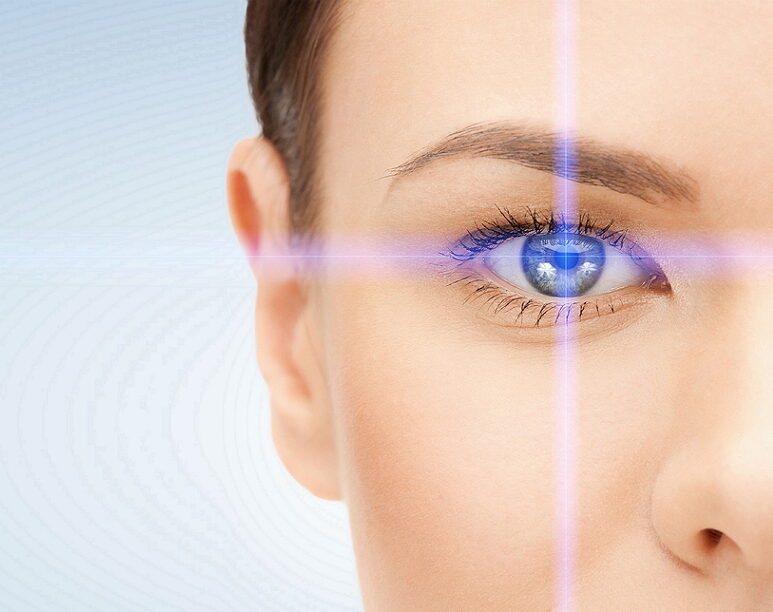- You have no items in your shopping cart
- Subtotal: $0.00
Eye Health

Dietary recommendation to prevent cataracts
Half the people over the age of 50 and three-quarters of those over 75 develop cataracts.
The eye’s lens is normally transparent; it refracts and focuses light on the retina, which allows a clear image to form. When the proteins in the lens break down, they clump together and form opaque spots called cataracts. These spots hinder light from being transmitted properly to the retina and vision becomes cloudy or blurry. The degree of impaired vision depends on the density and size of the cataract and its location on the lens.
What causes it Cataracts may develop as a result of age-related body changes, but some experts now think that the majority of cases can be attributed to smoking or to lifetime exposure to ultraviolet (UV) light from the sun. A low level of antioxidants (vitamins C and E, beta-carotene and selenium) may also be a factor. These compounds can quench free radicals – unstable oxygen molecules – that can damage the lens (Normally, the lens has a high concentration of glutathione, an antioxidant produced by the body.) In addition, having diabetes or being overweight increases the risk of cataracts, probably because high levels of sugar (glucose) in the blood contribute to the destruction of lens proteins. Injury to the eye can cause cataracts, too.
Symptoms
- Gradual and painless blurring or dimming of vision.
- Increased sensitivity to sun glare or car headlights at
- Seeing haloes around lights.
- Changes in color
How supplements can help
Taking supplements before a cataract appears may postpone its development or prevent it altogether. In the early stages of a cataract, supplements may slow its growth. Only surgery will remove a cataract, however. Both vitamin C and vitamin E, which are potent antioxidants, may protect the lens from damage from cigarette smoke and UV light. Astaxanthin also helps to neutralize free radicals. The herb blueberry is rich in flavonoids and helps to eliminate toxins from the lens and retina. In one study, bilberry combined with vitamin E stopped the progression of cataracts in 48 out of 50 participants. This combination of supplements usually provides adequate cataract protection, but the following nutrients may also be helpful. Lutein shows promise as a cataract preventive, and also boosts the effectiveness of vitamins C and E. Grape seed extract can have a therapeutic impact on even the tiniest blood vessels, and so benefits circulation in the eye. Consider adding flaxseed oil to this regimen as well; its essential fatty acids nourish the eye. Riboflavin (vitamin B2) is also important: take 25 mg a day if you do not take a multivitamin or a B-complex supplement that provides at least this amount.
Supplements recommendations
- Vitamin C
- Vitamin E
- Astaxanthin
- Blueberry
- Grape seeds Extract
- Lutein
What else you can do
- Give up smoking
- Protect your eyes from UV rays by wearing sunglasses and a wide-brimmed hat when outdoors.
- Eat plenty of antioxidant-rich fresh fruits and vegetables.
Ref: Reader’s Digest- the-healing-power-of-vitamins-minerals



